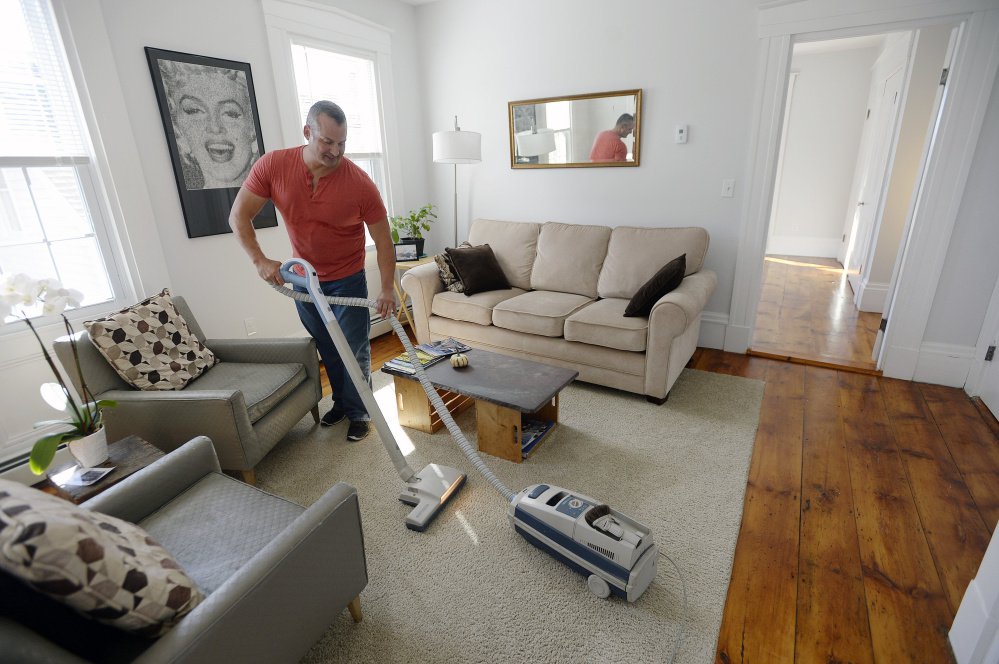Hosts using the Airbnb online home-sharing service earned $26 million and hosted about 174,000 visitors in Maine last year, according to data released by Airbnb Wednesday.
The announcement comes as Gov. Paul LePage tries to amend the state’s tax rules to ensure that hosts on Airbnb and other home-sharing platforms are collecting the required lodging tax of 9 percent and forwarding it to the state. If all Airbnb hosts had paid that tax in 2016, the state would have collected about $2.3 million in tax revenue.
According to Airbnb, a typical Maine host earned $5,900 in supplemental income last year, and a typical listing was occupied for 30 nights with an average length of stay of 2.7 nights. The number of visitors using Airbnb represents a 100 percent year-over-year increase, the company said. There were 3,700 active Airbnb hosts in the state in 2016, up from 2,100 in 2015.
“We are proud to see that more and more Mainers have discovered home sharing as an opportunity to share their community with visitors from around the world, and earn a little bit of extra money along the way,” said Andrew Kalloch, head of northeast public policy for Airbnb, in a written statement.
Portland is the top Airbnb destination in the state, with 51,214 guest arrivals and $7.1 million in host revenue in 2016, according to Airbnb’s data. The second most popular location, Bar Harbor, had 7,101 visitors and $1.4 million in revenue. Other top destinations were South Portland, Ellsworth and Old Orchard Beach.
While the popularity of home-sharing and short-term rentals has surged in recent years, it is still a fraction of the overall lodging market in the state.
Steve Hewins, executive director of the Maine Innkeepers Association, estimated there were $950 million in lodging sales in Maine in 2016. Maine hosted an estimated 9.5 million overnight visitors during the peak summer season in 2016, according to the Maine Office of Tourism.
Hotels have complained that Airbnb hosts have an unfair advantage because they don’t have to play by the same rules as traditional innkeepers, Hewins said. But the real tension is between hosts and communities, he said, noting that many of his association members use Airbnb and other online rental platforms to advertise their properties.
“We don’t have a negative view of Airbnb, other than we want to make sure those online platforms need to collect Maine lodging tax and remit it, that would be our concern,” Hewins said.
The biennial budget proposed by LePage has a section to address that concern.
Under the current law, short-term rental of living quarters is subject to the 9 percent lodging tax. But a person who only has one rental unit, such as a room, and rents it for fewer than 15 days a year in most cases doesn’t have to collect tax on that rent, said David Heidrich, a spokesman for Maine Revenue Services.
But if the property is rented on behalf of the owner by a rental agent, that agent must collect and remit the tax regardless of the number of days the unit is rented, Heidrich said. That rule currently doesn’t apply to online rental sites, such as Airbnb, VRBO or homeaway.com, but a proposed change in the law would require “transient rental platforms” to collect the tax from consumers. That means the tax would be collected by the online company when the property is booked and remitted to the appropriate state agency.
“Such a change would level the playing field for Maine businesses and relieve Maine-based hosts of their obligation to collect and remit the lodging tax,” Heidrich said.
“Transient rental platforms have opened the short-term rental market to hosts that might not normally make their homes available for rent, and we view this policy change as an important way for our tax laws to keep up with emerging technologies,” he added.
Airbnb collects lodging taxes from consumers in 16 other states, company spokesman Peter Shottenfels said.
Communities across the state including Rockland, Bar Harbor and Cape Elizabeth have set up rules to regulate short-term rentals and other communities are developing regulations. Short-term rentals have become a hot-button issue in Portland, where critics are concerned that building owners are converting apartments and homes into lucrative full-time short-term rentals, worsening an affordable housing crisis and changing the character of some neighborhoods. Hosts and supporters say the platform allows homeowners to make extra money to pay bills and fund repairs and gives guests a more authentic housing alternative to inns and hotels.
The Portland City Council is expected to debate and vote on proposed rules soon. The City Council’s Housing Committee recommended Feb. 8 that the full council consider several regulations, including annual registration and a 300-unit limit on short-term rental units that aren’t occupied by an owner.
Peter McGuire can be contacted at 791-6325 or at:
Send questions/comments to the editors.




Success. Please wait for the page to reload. If the page does not reload within 5 seconds, please refresh the page.
Enter your email and password to access comments.
Hi, to comment on stories you must . This profile is in addition to your subscription and website login.
Already have a commenting profile? .
Invalid username/password.
Please check your email to confirm and complete your registration.
Only subscribers are eligible to post comments. Please subscribe or login first for digital access. Here’s why.
Use the form below to reset your password. When you've submitted your account email, we will send an email with a reset code.